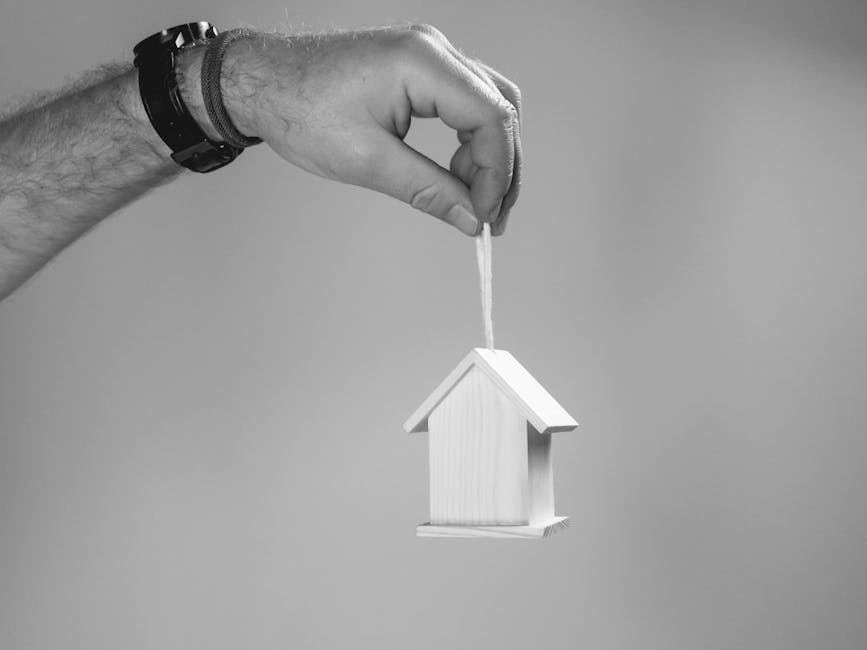Minnesota’s Housing Market: Trends and Predictions
Curious about Minnesota’s housing market? you’re not alone. Many people want to know how the market is doing and what to expect in the coming months. In this article, well explore key trends, expert opinions, and predictions that could affect your home buying or selling decisions.
what’s Happening in the Minnesota Housing Market?

As of late 2023, Minnesota’s housing market is showing signs of both stability and change. Prices have been rising, but the speed is slowing down. This shift is significant, especially for buyers who felt overwhelmed in a hot market.
According to recent data, the median home price in Minnesota is around $325,000. This is up 5% from last year. While this might sound good for sellers, it can be daunting for buyers. Many are wondering if this trend will continue or if a decline is on the horizon.
Why Are Prices Rising?

Several factors contribute to the rising prices in Minnesota’s housing market:
- Low Inventory: There are fewer homes available for sale. This limited supply pushes prices up.
- Strong Demand: Many people want to buy homes. The job market is strong, and interest rates are still relatively low.
- Desirable Locations: Areas like Minneapolis and St. Paul remain popular. People are drawn to the vibrant communities and amenities.
These factors create a competitive environment. Buyers often find themselves in bidding wars, driving prices even higher.
What Are the Predictions?

Experts have mixed opinions about what lies ahead for Minnesota’s housing market. Here are some key predictions:
- Stabilization: Many analysts believe the market will stabilize. Price increases may cool down in 2024.
- Interest Rates: Interest rates may rise again. Higher rates can reduce buying power, leading to decreased demand.
- Shift in Buyer Preferences: Remote work is changing what buyers want. More people seek homes with office space and outdoor areas.
Overall, the market may see a transition from a seller’s market to a more balanced one.
How Do Interest Rates Affect the Market?

Interest rates play a huge role in the housing market. When rates go up, borrowing costs increase. This makes mortgages more expensive. For example, if rates rise from 3% to 5%, a $300,000 mortgage payment can increase by over $300 a month.
Such changes can push some buyers out of the market, leading to lower demand. This shift may cause home prices to stabilize or even decrease.
What Should Buyers and Sellers Consider?
Whether you’re looking to buy or sell, understanding the market is key. Here are some tips:
For Buyers:
- Be prepared to act quickly. Good homes can sell fast.
- Consider getting pre-approved for a mortgage. This can give you an edge.
- don’t stretch your budget too far. Keep monthly payments manageable.
For Sellers:
- Price your home competitively. Overpricing can lead to longer selling times.
- Make necessary repairs. A well-maintained home attracts serious buyers.
- Be flexible with showings. The easier you make it for buyers to see your home, the better.
What Are Some Common Misconceptions?
Many people have misconceptions about the housing market. Lets clear up a few:
- It’s Always a Sellers Market: While sellers may have enjoyed a strong market, shifts can occur. Buyers can gain leverage in a balanced market.
- You Need a 20% Down Payment: Many options are available, including loans with lower down payment requirements. Explore your options!
- Waiting Always Pays Off: Timing the market can be tricky. Factors like job changes or family size may mean you need to move sooner rather than later.
Understanding these misconceptions can help you make informed decisions.
What Is the Future of Minnesotas Housing Market?
Looking ahead, the future of Minnesota’s housing market seems mixed but promising. Here are some trends to watch:
- Continued Urban Development: Cities are expanding, and new homes are being built. This will provide more options for buyers.
- Focus on Sustainability: Eco-friendly homes are gaining popularity. Many buyers prioritize energy efficiency.
- Remote Work Influence: People are looking for homes with space for home offices. This trend might drive new developments in suburban areas.
By staying informed about these changes, both buyers and sellers can navigate the market more effectively.
How Can You Stay Updated?
Keeping tabs on the housing market is essential. Here are a few ways to stay informed:
- Follow local real estate news. Websites like Star Tribune often publish housing reports.
- Join local community groups on social media. Residents often share insights and experiences.
- Consult with a local real estate expert. They can provide valuable guidance tailored to your needs.
Final Thoughts
The Minnesota housing market is evolving. Prices are rising, but the pace is slowing down. Buyers and sellers alike should stay informed and be prepared to adapt to changes.
Remember, whether you’re buying or selling, knowledge is power. Keep an eye on trends, consult experts, and make decisions that align with your financial goals. The right approach will help you navigate the market with confidence.
Stay engaged with the Minnesota housing market, and youll be ready for whatever comes next!



